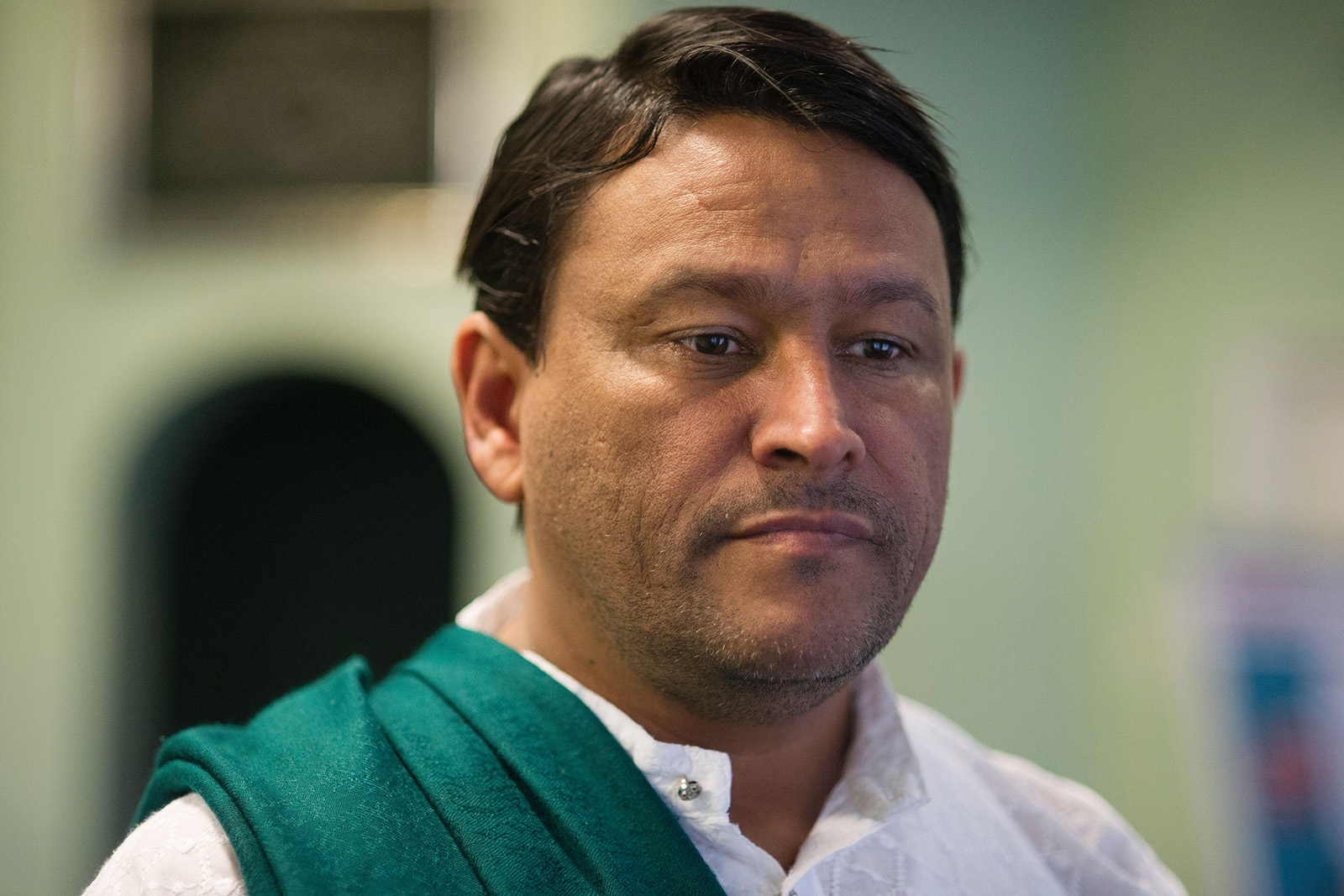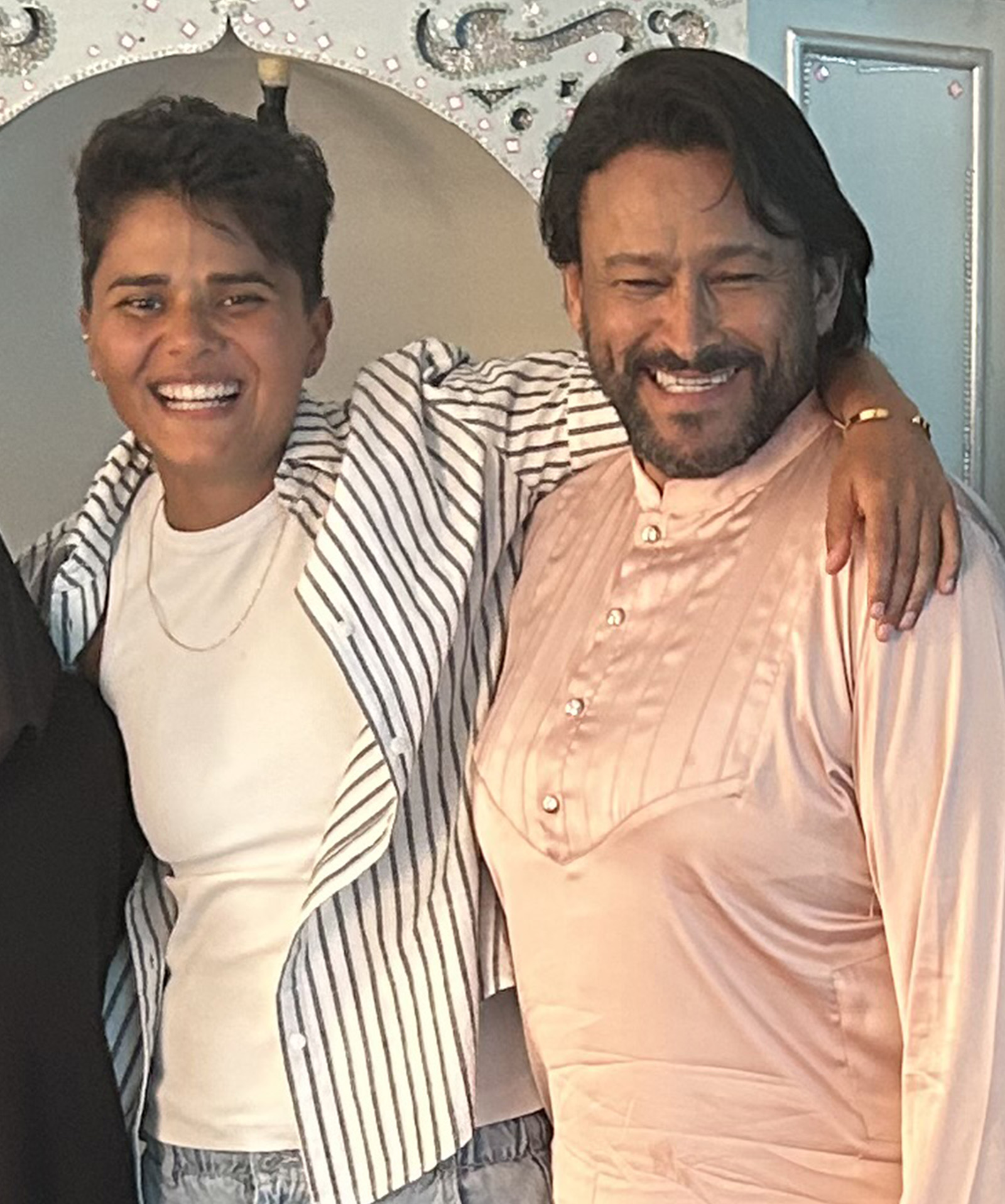The compassionate and inclusive heart of Islam came alive through imam Muhsin Hendricks
Imam Hendricks, who was killed on 15 February, ran a mosque intended as a safe haven for gay and other marginalised Muslims
–

I first laid eyes on imam Muhsin Hendricks through a television screen in 2007, watching the documentary A Jihad for Love, on Islam and homosexuality. I was a 17-year-old closeted queer, dangerously close to abandoning God and subsumed in a thick fog of self-hatred and suicidal thoughts. And there he was — nur (light) exuding an otherworldly softness, radical in his tenderness, unashamedly gay and God-loving.
Considered the world’s first openly gay imam, Muhsin communicated a core spiritual truth: Allah delights in the diversity of their creation, and the liberation of all oppressed people is not just political, but a spiritual mandate. It was the first time I had ever heard or seen a queer Muslim other than myself and the first of many times that Muhsin helped me choose life.
Seventeen years later, in 2024, we met in person at the UK’s first Muslim Pride event, organised by the LGBTQI+ charity Imaan. By then I was public in my queer Muslim activism, liberation psychology and poetry. I facilitated a panel with Muhsin and was filled with awe. He reminded me of core Islamic truths: there can be no gatekeepers to God, nothing exists outside of divinity, and the exiled and excluded, too, have a sacred pathway to Allah.
God gifted us a queer vessel of knowledge, a scholar who devoted his life to studying the Qur’an, who made it so that not just queer Muslims, but all people could wander into the heart of Islam. The feminist, liberatory and compassionate heartbeat of Islam came to life through Muhsin. It was contagious.
After the panel, he invited me to his home of Cape Town to participate in an All-Inclusive Islamic Retreat, bringing together queer Muslim leaders and allies from all over the world. I spent three life-changing months in South Africa. On Fridays, I would prostrate in prayer alongside a majestic community led by him, soaking in his wise and liberatory teachings, followed by a feast he cooked. Just weeks ago, I was sitting by his side, eating his inimitable biryani, seeking his guidance on matters of the heart.
I am still in shock, floored by the loss of him, unable to fathom that he is no longer physically here. He was shot dead in Cape Town last Saturday, 15 February — most likely a crime infused with hatred for the other, and therefore, for oneself. The lie that some lives are less human, deserving of punishment or death, is visible not only in the killing of imam Muhsin, but in the genocide in Palestine, in the violence in Sudan and Congo, in the everyday Islamophobia we see here in the UK and across the world. The dehumanisation of queer, trans, Muslim and Black life is a severance from the sacrality of all life.

Chillingly, Muhsin told the Daily Maverick in 2018: “I’m gay and I’m an imam, and I want to announce it to the world. And if they want to kill me, they can kill me, but I’d like to meet my Maker with that kind of authenticity.” He met his maker with radical authenticity.
There has been an outpouring of love from the queer Muslim community across the world in the face of his assassination. But there are also those co-opting his death to espouse Islamophobic and homophobic violence. Let me be clear: Islam is not a faith tradition of violence nor of homophobia. There are Muslim organisations, religious Muslim spaces and leading bodies representing imams who are standing up against this violence across the globe. At the same time, there is a painful silence among both heterosexual Muslim and non-Muslim communities. Yet transformation requires everyone to abolish hierarchies, be willing to speak up and refuse the normalisation of violence. This is not just about queer Muslims — it concerns the freedom of us all.
Muhsin’s work was steeped in intention (niyyah) — he lived for something greater than himself. After building many queer Muslim spaces, he founded Al-Ghurbaah in 2018, a mosque providing a safe space for queer Muslims and marginalised women to practise Islam. The name follows a hadith that states: “Islam began as something strange, and will return to something strange.” Muhsin recognised that those deemed strange by society — Muslims, queers and all oppressed people — are worthy not just of God’s love, but of liberation.
In Islam, we have 99 names to describe Allah. None of us are God, but we seek to transcribe those names through the ways we live. Imam Hendricks’ actions pointed us toward The Most Generous, The Shaper of Beauty, The Most Compassionate.
His God-conscious freedom work stretched back to the 90s. In the time I knew him, I witnessed his day-to-day generosity and boundless compassion. He cooked for the Al-Ghurbaah community each Friday. He lent me his sherwani when I had nothing to wear for a gala, hand-made the dress for his daughter’s dance at the same event and crafted tiny Qur’anic guidance cards for those in need.
Muhsin’s tender spirit is an inextinguishable light. His courageous life and death calls us to act in greater service to each other — to dismantle the fear, silence and complicity that enable oppression, and to remember that Allah’s mysterious love is expansive enough to hold us all. We must support the life-saving work of the Al-Ghurbaah Foundation and other queer Muslim organisations, such as Hidayah and Imaan.
To honour Muhsin’s legacy, we are tasked to continue building what he envisioned: a world where queer Muslims are no longer under physical and emotional threat, where Islam is reclaimed as more justice than weapon.
The queer Muslim charity Hidayah can be reached for support via email. The charity akt lists resources for LGBTQI+ Muslims here.
Topics
Get the Hyphen weekly
Subscribe to Hyphen’s weekly round-up for insightful reportage, commentary and the latest arts and lifestyle coverage, from across the UK and Europe
This form may not be visible due to adblockers, or JavaScript not being enabled.